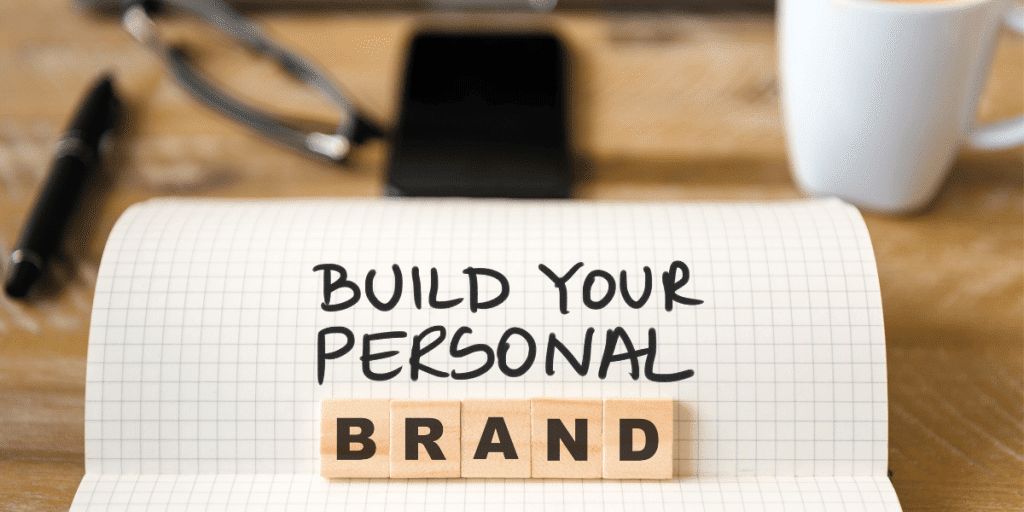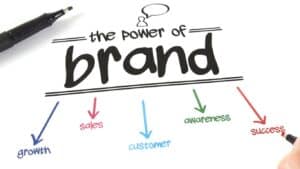In today’s competitive world, personal branding has become more important than ever. It’s not just about having a catchy logo or a well-designed website; it’s about how you portray yourself and your expertise to the world. Personal branding is showcasing your unique skills, experiences, and values to create a lasting impression on others. It is about establishing yourself as an authority and building trust with your audience. In this article, I will guide you through the process of crafting a powerful personal brand, both online and offline.
The Importance of Personal Branding
Personal branding plays a crucial role in our personal and professional lives. It can open doors to new opportunities, help us stand out in a crowded marketplace, and establish a strong reputation. In today’s digital age, where information is readily available at our fingertips, personal branding is essential for showcasing our expertise and building credibility. Whether you are an entrepreneur, a freelancer, or a professional looking to advance in your career, having a strong personal brand can give you a competitive edge.
Defining Your Personal Brand
Before you can unveil your authenticity and expertise, you need to define your brand. Start by asking yourself some fundamental questions: What are your values? What makes you unique? What are your passions and strengths? By understanding your core values and what sets you apart from others, you can start shaping your brand. Remember, your brand should be an authentic reflection of who you are and what you stand for.
Identifying Your Strengths and Areas of Expertise
To craft a powerful personal brand, it’s crucial to identify your strengths and areas of expertise. Take some time to reflect on your skills, experiences, and knowledge. What are you genuinely good at? What do others perceive as your strengths? By understanding your strengths, you can focus on them and position yourself as an expert in your field. This will help you build credibility and attract the right audience who values your expertise.
Unveiling Your Authenticity
Authenticity is the key to a powerful personal brand. It’s about being true to yourself and letting your personality shine through. In a world where everyone is trying to fit into a mold, authenticity sets you apart. Share your unique story, experiences, and perspectives. Be transparent about your journey, including both successes and failures. Your audience will appreciate your honesty and connect with you on a deeper level.
Building an Online Presence for Personal Branding
In today’s digital world, building an online presence is essential for personal branding. Start by creating a professional website that showcases your expertise, achievements, and portfolio. Use high-quality images and compelling content to engage your audience. Additionally, create profiles on relevant social media platforms such as LinkedIn, Twitter, and Instagram. Consistently share valuable content, engage with your audience, and build relationships with influencers in your industry.
Creating a Consistent Brand Message Across Online Platforms
To create a strong personal brand, it’s important to have a consistent brand message across all your online platforms. Your website, social media profiles, and other online presence should align with your brand image and values. Use consistent colors, fonts, and tone of voice to create a cohesive brand identity. This will help you establish a memorable and recognizable brand that resonates with your audience.
Leveraging Social Media for Personal Branding
Social media platforms provide a powerful tool for personal branding. They allow you to reach a wide audience, engage with your followers, and share your expertise. Identify the social media platforms that are most relevant to your industry and target audience, and create a strategy to leverage them effectively. Share valuable content, engage in meaningful conversations, and build a strong network of followers and influencers. Remember to maintain professionalism and authenticity in all your interactions.
Building Credibility and Authority Offline
While online presence is crucial, building credibility and authority offline is equally important. Attend industry conferences, seminars, and networking events to connect with like-minded professionals and expand your network. Share your expertise by speaking at events or writing for industry publications. Collaborate with other experts in your field to establish your authority. By being active offline, you can build a reputation that complements your online presence and strengthens your brand.
Personal Branding Examples and Success Stories
Looking for inspiration? Here are some personal branding success stories to motivate you:
-
Oprah Winfrey: Known for her authenticity and ability to connect with her audience, Oprah Winfrey has built a powerful personal brand centered around empathy and empowerment.
-
Elon Musk: Through his innovative ideas and bold vision, Elon Musk has positioned himself as a visionary leader in the tech industry. His brand reflects his ambition, creativity, and determination.
-
Michelle Obama: Michelle Obama’s personal brand is built on her grace, intelligence, and advocacy for important social issues. She has successfully established herself as a role model and inspiration for many.
Personal Branding Mistakes to Avoid
While crafting your brand, it’s important to avoid common mistakes that can hinder your progress. Some common personal branding mistakes to avoid include:
-
Inconsistency: Inconsistency in your brand message, visuals, or online presence can confuse your audience and weaken your brand. Ensure that your brand is consistent across all platforms.
-
Lack of Authenticity: Trying to be someone you’re not or pretending to have expertise you don’t possess can damage your brand. Stay true to yourself and let your authenticity shine through.
-
Negativity: Constantly complaining or engaging in negative discussions can tarnish your brand. Stay positive and focus on providing value to your audience.
Personal Branding Resources and Tools
Here are some resources and tools that can help you in your personal branding journey:
-
Canva: A graphic design tool that allows you to create professional-looking visuals for your brand, including social media posts, presentations, and logos.
-
LinkedIn Learning: An online platform that offers a wide range of courses on personal branding, leadership, and professional development.
-
BrandYourself: A platform that helps you manage and improve your online reputation by monitoring search results and providing actionable insights.
Conclusion
Crafting a powerful personal brand is a continuous process of self-discovery, reflection, and strategic positioning. It’s about showcasing your expertise, authenticity, and values to create a lasting impression on others. By defining your brand, identifying your strengths, and building a consistent online and offline presence, you can establish yourself as an authority and attract the right opportunities. Remember, personal branding is not just about what you say, but how you make others feel. So, go ahead, unveil your authenticity, and let your personal brand shine.












